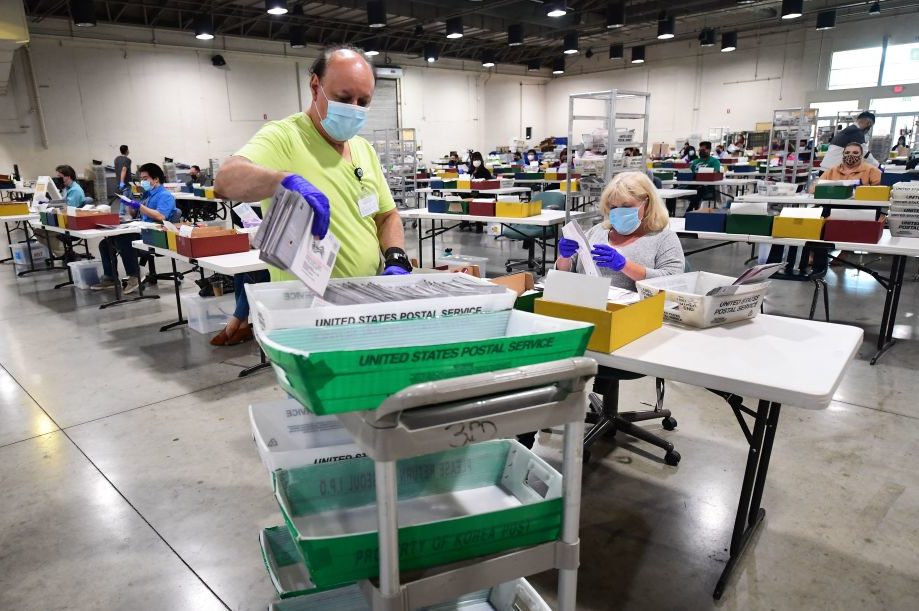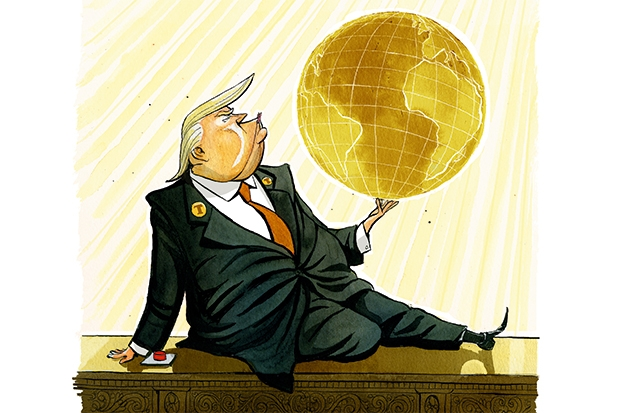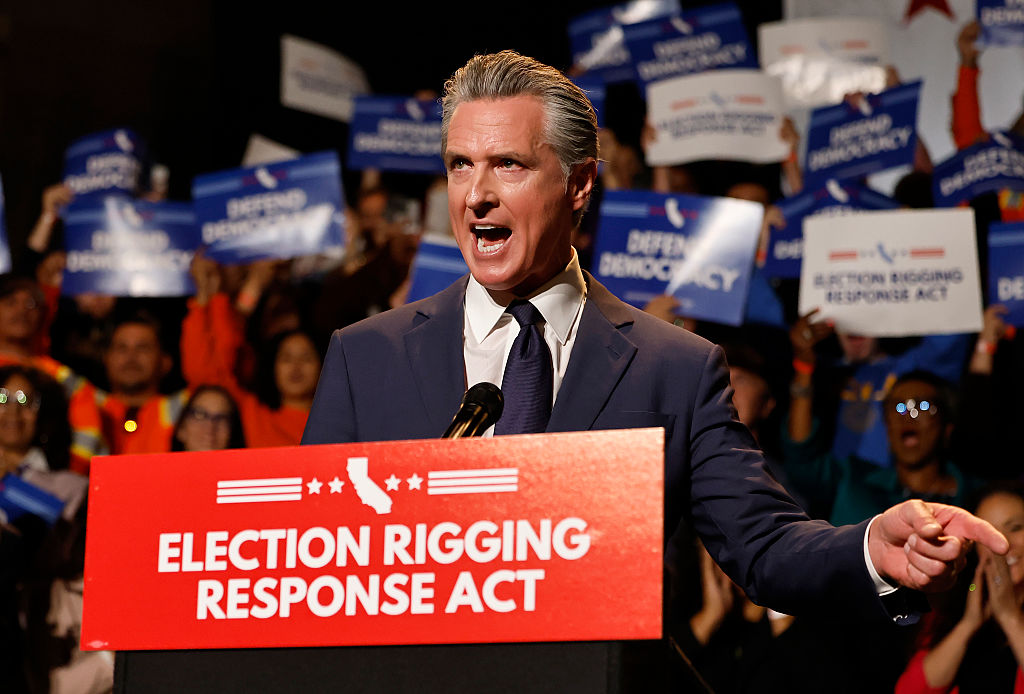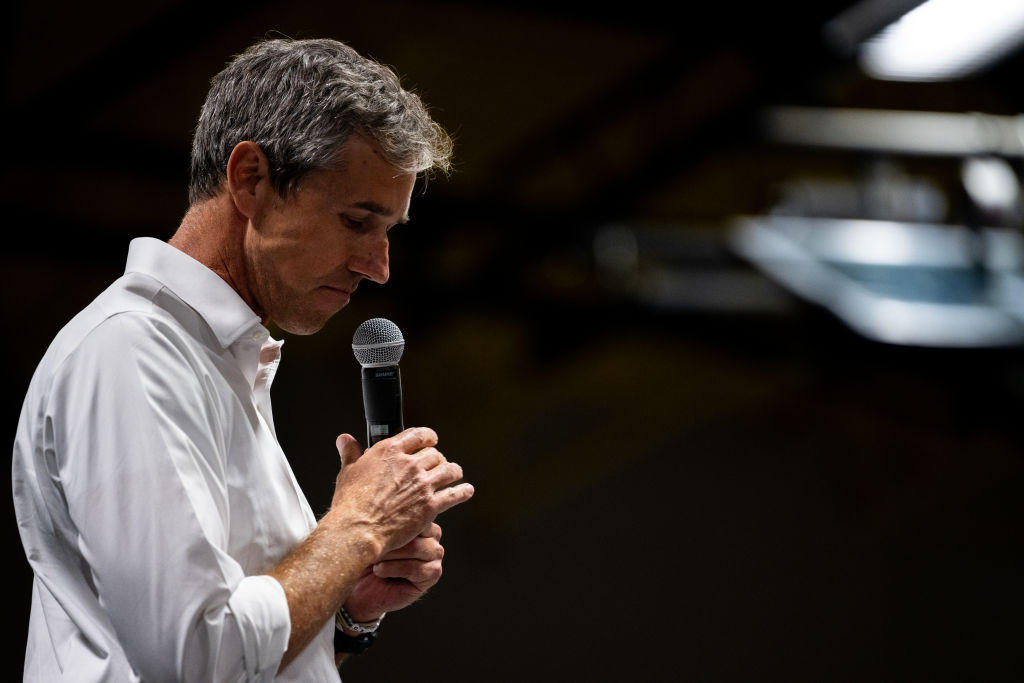Some conservatives did themselves no favors by exaggerating the threat of election irregularities in California’s Tuesday recall election. Tomi Lahren of Fox Nation claimed on air that: ‘The only thing that will save Gavin Newsom is voter fraud.’ A New York Times news story promptly labeled concerns about the election as ‘baseless allegations’.
But regardless of the recall outcome — which Gov. Newsom is favored to survive — we shouldn’t dismiss concerns about the shift California and other states have made to all mail-in elections at the expense of the traditional secret ballot.
Two electorates in places with some 40 million people each — California and Canada — will vote this month. The widely differing approaches taken in each on voting speaks volumes about the skewed, one-sided debate the US is having over election integrity.
The anti-recall campaign has deployed what Steve Smith of the California Labor Federation calls ‘the largest field campaign ever run in the state’. A total of 20,000 staffers and volunteers targeted 10.3 million voters in order to exploit California’s sweeping legalization of ballot harvesting in 2016.
Ballot harvesting is the collection of absentee ballots for delivery to election officials. It’s illegal in 23 states because it’s ripe for abuse and fraud — it allows political operatives to interact with voters without safeguards to ensure they aren’t being misled, coerced, intimidated or paid for a vote, or that the voter’s ballot is actually delivered.
In 2018, a new US House election was ordered in North Carolina after eight operatives were charged with ‘scheming to illegally collect, fill in, forge and submit mail in ballots’ for a GOP candidate.
In Texas, Omar Escobar, the Democratic district attorney of Starr County, says the abuse of elderly or infirm voters is so pervasive that ‘the time has come to consider an alternative to mail-in voting’ that ‘can’t be hijacked’.
In the California recall, a felon was arrested last month with drugs, a loaded firearm and more than 300 unopened mail-in ballots for the recall election in his car.
Even elected officials give into temptation. Last month, prosecutors charged six people with voter fraud, including Compton City Council member Isaac Galvan. Galvan won his race last June by only one vote. He’s alleged to have conspired with another defendant, Jace Dawson, to fill in blank mail-in ballots. A text has Dawson telling Galvan he’s found a neighbor who has moved out of town and needed more ‘lost ballot forms’.
Those forms are out there. California’s legislature extended an emergency COVID-19 rule change so all 22 million registered voters have been mailed a postage paid ballot for the recall.
But state registration rolls are notoriously outdated. In 2019, Los Angeles County had to agree to a court settlement to remove as many as 1.5 million inactive voter registrations. For 20 years neither the state nor Los Angeles had followed a 1993 law signed by President Bill Clinton requiring states remove inactive registrations.
Sending ballots addressed to ineligible voters that can be stolen, forged or misused is a recipe for disaster and undermines confidence in the outcome. The federal US Election Assistance Commission reports that in 2020 almost 15 million mail-in ballots weren’t returned as voted, were undeliverable or were otherwise ‘unable to be traced’. The Public Interest Legal Foundation concludes ‘unknown ballots are the greatest blind spot in the American electoral system’.
That may explain why Canada has such different rules. California doesn’t require a voter to produce ID. Canada requires its voters present some government-issued ID or at least two pieces of ID with their name and full address. Those who lack any can still vote, but only if someone who knows them and is assigned to their polling station vouches for them.
For mail-in voting, Canadians must request ‘a special ballot and produce proof of identity, either by applying online and sending a digital scan of documents, or by mail with photographs of identification’.
Sally Pipes, a Canadian who heads California’s Pacific Research Institute, told me: ‘Canada’s rules are much more secure. We need them rather than the anything-goes balloting of Wild West California.’
That’s not likely to happen regardless of the recall outcome. Nationally, mail-in voting increased from 21 percent of all ballots in 2016 to 46 percent in 2020 as pandemic decrees issued by governors and health officials expanded the practice without legislatures actually changing the law.
California’s legislature has sent Newsom a bill to require counties to mail ballots to all registered voters in every election. The bill passed this month on a strict party line vote.
If wholesale mail-in balloting becomes a norm in other states, it’s essential state legislatures also pass safeguards against fraud and abuse.
Sadly, instead House Speaker Nancy Pelosi is pushing a move in Congress to have a federal takeover of state election laws in Congress.
Voting rules should lead people to respect the outcome. Merely boosting ‘voter turnout” shouldn’t be the only goal. Incredibly lax laws only add to voter cynicism and political polarization. A recent poll by the Public Policy Institute of California found there’s even less trust than ever in the election process among Californians. Asked how much confidence they had in it, 58 percent of Democrats said a ‘great deal’ but only 13 percent of Republicans did. Among Republicans, 43 percent had ‘very little’ confidence.
Maybe Canada should send election observers south to teach us how they make it both easy to vote and hard to cheat.

























